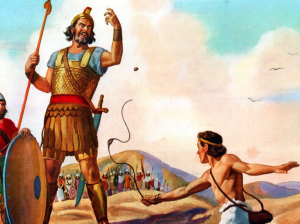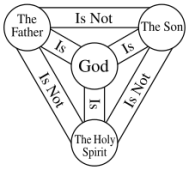This sermon was the final in our “Still Valued and Valuable” series, preached on the Last Sunday after Trinity, 26th October 2014, at St Andrew’s 8am & 9.30am and All Saints’ 10.30am. The readings were Deuteronomy 34: 1-12, 1 Thessalonians 2: 1-8 and Matthew 22: 34-46.
Love. It seems to be right at the heart of so many things. Pop songs, romantic story lines on the television, films and books. (In 2011 the novel, Fifty Shades of Grey was the best seller in the UK – outstripping even Harry Potter. In it the writer was trying to demonstrate that it had, at its heart – for all its controversy – love relationship between a man and a woman). I did actually try to read it, to see what all the fuss was about, but couldn’t get beyond the first fifteen pages. Just not my sort of book I guess.
Love is seen as something valuable by most people. Something almost everyone wants. Something most people miss when for whatever reason it seems not to be there. Something which is fundamental to who we are as human beings.
Which is why it’s at the very heart of the message which God gives us through Jesus. Our own human attempts through music, books, films and so on – even though they are often sort of on the right lines – always fall short of what love truly is. We probably know much more about love from our own personal experiences – family, friendships, marriages. Maybe particularly when tough experiences are shared or the realities of hurt or our different personalities, view points, self-centredness and so on require lots of patience, compromise and forgiveness.
Love – real love – it seems, can be hard work. Requiring a lot of giving, sacrifice, selflessness, costly service. It can be really, really demanding, really draining.
We know this from our own experience.
St Paul in his famous first letter to the Church in Corinth – still a standard reading for weddings, and I think for good reason – wrote: “love is patient, love is kind, love is not envious or boastful or arrogant or rude. It does not insist on its own way; it is not irritable or resentful; it does not rejoice in wrongdoing, but rejoices in the truth. Love bears all things, believes all things, hopes all things, endures all things”. Keeping all of that going all the time… it’s blooming hard work!
If we needed reminding a good test at home is, perhaps to read that passage from 1 Corinthians 13, replacing the words “love is” with “I am” and see how it sounds! How hard we do need to work!
In the reading we had this morning from another of Paul’s letters – one of the very early ones he wrote, to the Church at Thessalonika – it’s clear that it was really, really hard work. Paul and his companions, as they shared the good news of the love of God in as many places in the known world they could get to, were opposed almost at every step of the way.
Misunderstood, ill-treated, imprisoned, beaten up. Making it clear that they themselves had no ulterior motives, had nothing to gain, but relied wholly on the strength provided by God, “we were”, Paul writes, “gentle among you, like a nurse caring for her own children. So deeply do we care for you that that we are determined to share with you not only the good news of Jesus but also our very selves, because you have become very dear to us”.
There is something about real love which persists, through the hard work, the let-downs, the disappointments, the sense that we may be getting nowhere.
In our first reading, from the Old Testament, we heard about Moses. Now there’s someone who was stretched to the very limit. Put by God in charge of a huge group of people – the Israelites – to lead them out of slavery in Egypt, through all the discomforts of the desert of Sinai towards a “Promised Land” – a trip which, ultimately, took forty years. “Will we ever get there?” must have been a prevailing emotion. Moses, as we heard, didn’t actually make it in his lifetime. The people were unruly, complaining, moaning, bickering from the first and throughout.
The people were demanding, blaming Moses for their discomfort, driving him almost to distraction: “Why have you given me this lot to have to deal with?” Moses implored God, in the Book of Numbers, chapter 11. In one translation Moses says to God, “I can’t carry all these people by myself! The load is far too heavy! Do me a favour and spare me this misery!”
And yet he carries on. In one sense he had no choice. As we don’t, really, in caring for those committed to us – because of a promise we have made in marriage perhaps, or because they are members of our family, or because we are compelled by compassion or because we simply love them. Moses carried on. Loving God’s people. Serving them. Guiding and caring for them literally to the end of his days.
Loving is “doing”. And loving God – in doing what he asked in carrying on loving, serving his people – even though sometimes it was a right royal pain! – was what Moses was simply getting on with. While he was doing it, it probably felt far from the noble, gracious thing it actually was. No doubt he wanted to throw in the towel and run away a dozen times. But he didn’t. He kept on going.
When, in this morning’s Gospel reading, Jesus reminds the Pharisee lawyer of the greatest commandment: “You shall love the Lord your God with all your heart, and with all your soul, and with all your mind – this is the first and greatest commandment – and the second is like it: you shall love your neighbour as yourself”, he is telling us what it is all about. That we must go on loving and serving others, even when it is hard. Even when we get nothing in return. Even when it seems not to be appreciated or even noticed. Even when we don’t like the person we are called to love. We must treat them with the same consideration, gentleness and dignity as we need ourselves.
But how? How on earth do we do this? How, when we think it is beyond our strength? Our endurance?
Well, there is only one way. But it is a sure way. To know that we ourselves are loved by God. “We love God”, writes John in his first letter, chapter four, “because he first loved us”. There is no doubt about that. It is a fact. God loves us, each one of us, so profoundly, so passionately that he gave himself, in his Son Jesus, to die for us. If any of us was the last person in the world he would still have died for us.
So when loving is hard in our own lives we have the knowledge, the simple, wonderful reality of God’s love for us (and maybe the knowledge of what he has had to put up with from us, maybe over many years!). A love which will keep on going. A serving, patient, giving love (for that is what love is all about).
So when it is hard we need to remember that God loved us first. Always will. Actually through Moses, we see God. Bearing with, caring for, loving and guiding his people to freedom. So much more through Jesus. And not only does he give us an example to follow, it gives us a strength which nothing else can. To know that we are loved – that we are, each one of us, the apple of God’s eye.
I know it doesn’t make sense but it is as if each of one us is his favourite child! He delights, utterly, in each one of us. Loves us with a passion. And to know that. To rest secure in that knowledge, just as Jesus, himself, did when he was on earth makes all the difference when the love we offer to others and the world seems to be rejected, not appreciated or to make any difference. To know that renews our strength to go on loving.
Today is known as “Bible Sunday”. Hence, the special collect we had today. “Blessed Lord, who caused all holy scriptures to be written for our learning; help us so to hear them, to read, mark, learn and inwardly digest them that, through patience, and the comfort of your holy word, we may embrace and forever hold fast the hope of everlasting life, which you have given us in our Saviour Jesus Christ, who is alive and reigns with you, in the unity of the Holy Spirit, one God, now and forever. Amen.
The God who loves us is there, shown throughout the Bible. Through the lives of ordinary people, like you and me. It is true that some people think that the Old Testament shows an altogether different God: a God of anger, of coldness, of distance. A fearsome God. But if you look more closely, whether at Moses, David, Ruth, Esther or countless others your will see, yes, a God of strength and purpose and holiness but also a God of tenderness, of grace, of patience and of love. And in the New Testament all of this brought together in one person, Jesus.
If the Bible was a stick of rock we would find the words running all the way through the centre: “God loves you”. God is love.
And Jesus calls us to follow him.
Amen.







